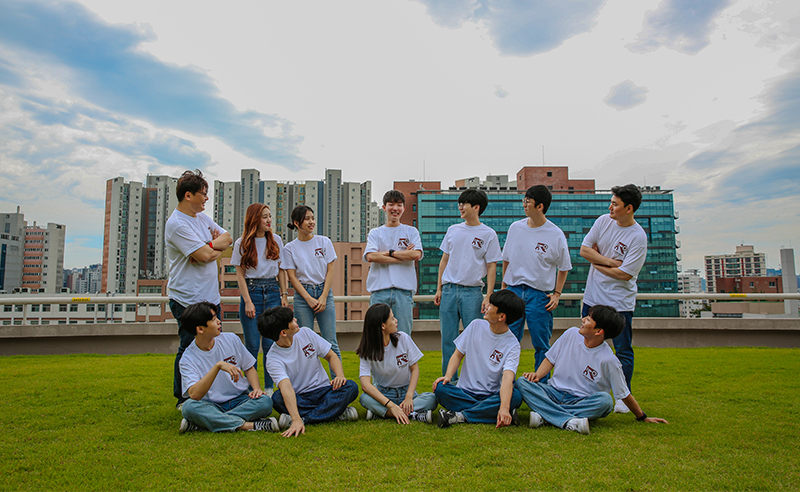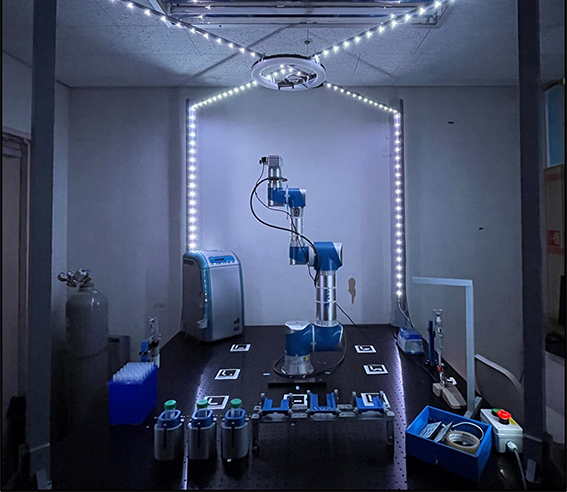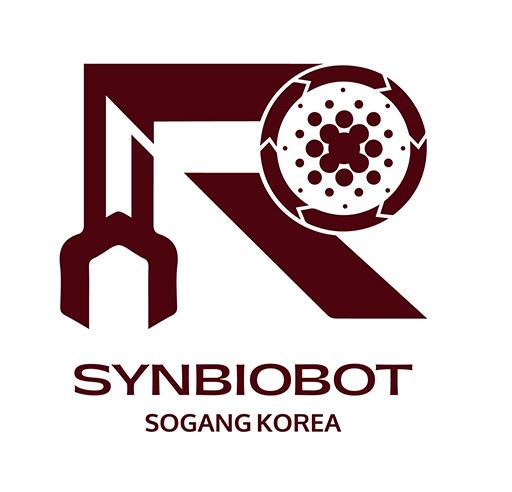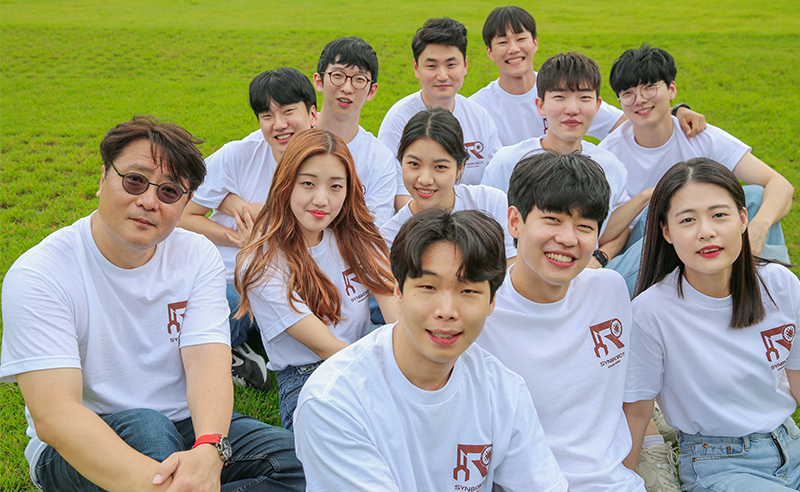Team Sogang_Korea to Participate in International Genetically Engineered Machine Competition (iGEM) with Their Genetically Modified Robot
- The team will present the world’s first genetically modified robot arm, competing against more than 360 university teams in Paris, France, in October -
- Team Sogang_Korea was organized by the Institute for Biological Interfaces and four other departments -

▲ Team Sogang_Korea
The LINC project announced that Sogang_Korea, organized by the Institute for Biological Interfaces, would participate in the finals of the iGEM in Paris, France.
The iGEM is the world’s largest international synthetic biology project, first held at MIT in the U.S. in 2003, and marking its 19th annual event this year. Teams from top universities around the world, including Harvard University in the U.S. and the Swiss Federal Institute of Technology Zürich in Switzerland, demonstrate their projects to bring contributions to humankind based on bioengineering related to gene manipulation. The competition evaluates the technological excellence and real value of these contributions to humankind. More than 70,000 young researchers in 42 countries have participated in the iGEM, and more than 360 teams will participate this year.
Sogang_Korea is a joint team composed of members from four departments (Chemistry, Mechanical Engineering, Life Sciences, and Computer Engineering) to form part of the social contribution program of the Institute for Biological Interfaces projects. The project consists of the Robot Lab team, responsible for designing the robot arm and implementing the software for remote control (Hamm Jung-min, senior in the Department of Chemistry, acting as team leader), the Wet Lab team, responsible for making the robot control cell culture and genetic information, and the Wiki team, in charge of maintaining external relations, recording each team’s activities, and managing reports for the competition.
A total of 10 undergraduate students are working on the project: six students from the Department of Mechanical Engineering (Lee Jae-jin, Lee In-jun, Kang Ji-seok, Lee Yun-geun, Jo Young-jun, and Lim Seong-hyeon), two students from the Department of Chemistry (Hamm Jung-min and Park Ji-ae), one student from the Department of Life Sciences (Kang Ji-won), and one student from the Department of Computer Engineering (Lee Seo-young). Graduate students from the Institute for Biological Interfaces (IBI) (Ivan Brilian and Lee Seung-yeon from the Department of Chemistry) are also helping with technical support. Meanwhile, Shin Kwan-woo, the team’s director and head of the IBI, along with Jeong Seok-hwan, the deputy director and professor from the Department of Mechanical Engineering, are joining the project to support the space and equipment for students’ activities. In addition, Sogang_Korea is supported by the IBI, which is the key research center for artificial cells (with Professor Shin Kwan-woo of the Department of Chemistry acting as the director) and is sponsored by Lab311 and the company OnRobot in Denmark.
Members of the team Sogang_Korea have been exerting their efforts towards completing the project since last March (for six months) and have already received excellent reviews in the competition. Last July, the team was selected as the Impact Grant Winner, which is awarded to 90 teams among all participants, and was awarded prize money of $2,500, alongside teams from EPFL, MIT, and Stanford University.
On October 26 this year, a total of 7,000 participants and about 360 teams will make presentations and be evaluated, and the Grand Jamboree for the Championship will be held at EXPO in Versailles, Paris, France. All the participants from Sogang University will attend those events with the support of LINC. In France, the team will also take part in activities to promote friendship and cooperation with other teams from prestigious overseas universities. Award-winning projects in the past 19 years have led to investments and commercialization in the synthetic biology field, and some companies related to the COVID-19 portable PCR and diagnosis device have recently been founded.
The team from Sogang University will show off their robot called 'SynBioBot,' which is an automated robot that remotely performs all of the steps required for gene manipulation, including cell distribution and culture. The robot automatically performs tasks that require highly skilled manual work, including precise distribution of cell lines, nutrient supply, temperature control, and analysis, which are essential for cell culture and DNA manipulation using viruses. The single robot arm handles the entire experiment process, and the team designed not only all the interface devices that connect the cell culture apparatus and the robot but also the software that remotely controls the robot using the Chembot from the IBI.

▲ Workspace for the SynBioBot project and synthetic biology produced by Sogang_Korea
Unlike conventional robot arms that are designed to perform repetitive tasks like factory automation, the team’s robot arm remotely controls cell manipulation, cell culture, and measurement using viruses, which normally requires fully skilled scientists, representing the world’s first successful case. This robot arm establishes location recognition through installed cameras, real-time cognitive functions for precise location control, and an online streaming environment for the entire experiment.
Sogang_Korea uses the robot to enable students with no previous experience doing experiments involving cell culture and gene manipulation to directly run the robot online using 'SynBioBot.' In addition, the robot will be released for educational purposes to allow remote experiments in synthetic biology, such as cell culture, virus infection, and gene modification, and it will also be used as a research robot for remote chemical and biological experiments.
The undergraduate students will be registered as the inventors of each designed device and software under intellectual property rights, such as patents, design patents, and software registration, and different additional devices for chemical and biological experiments will be commercialized along with the robot arm.

▲ Logo of the team Sogang_Korea
Having been involved in research and development for the past six months, the team has been showing outstanding competitiveness and superiority by winning the last iGEM Impact Grant, the University Industrial Technology Support Project Leader Award at the International S.M.A.R.T. Competition in August, and the Poster Award at the ICEAS (the International Conference on Engineering and Applied Sciences). For this iGEM final competition, the team is ready to show the capabilities of Sogang University and compete against the world’s top talents.

▲ Team Sogang_Korea
“I stayed up many nights with the students from the Departments of Mechanical Engineering, Computer Engineering, and Life Sciences for the last six months, and we have been working hard,” said Hamm Jung-min, the student team leader and a senior from the Department of Chemistry. “We entered the competition with support from the IBI, and this opportunity is very precious to us, since we never thought we would make it to Paris, France. We will continue to do our best right until the end.”
“While preparing for this competition, I was happy to be able to handle the robot with my classmates who are also interested in robots,” said Lee Jae-jin, a senior from the Department of Mechanical Engineering, who participated in designing the robot. “I’m excited to show our work, which was made in collaboration with the members from other departments. I’m thrilled to present the robot under the Sogang University brand, which will change the world.”
“We have completely opened up the lab for this competition,” said Professor Shin Kwan-woo of the Department of Chemistry, the team’s director. “I’m grateful for all the participating students who have created wonderful moments full of passion in the COVID-19 pandemic, along with the IBI’s graduate students who have offered up their laboratories,” he added. “The university laboratories exist to be opened up to the university’s members. I appreciate the active support of LINC, and I hope our undergraduate students from different majors have ample space and opportunities to perform many creative experiments and research.”
